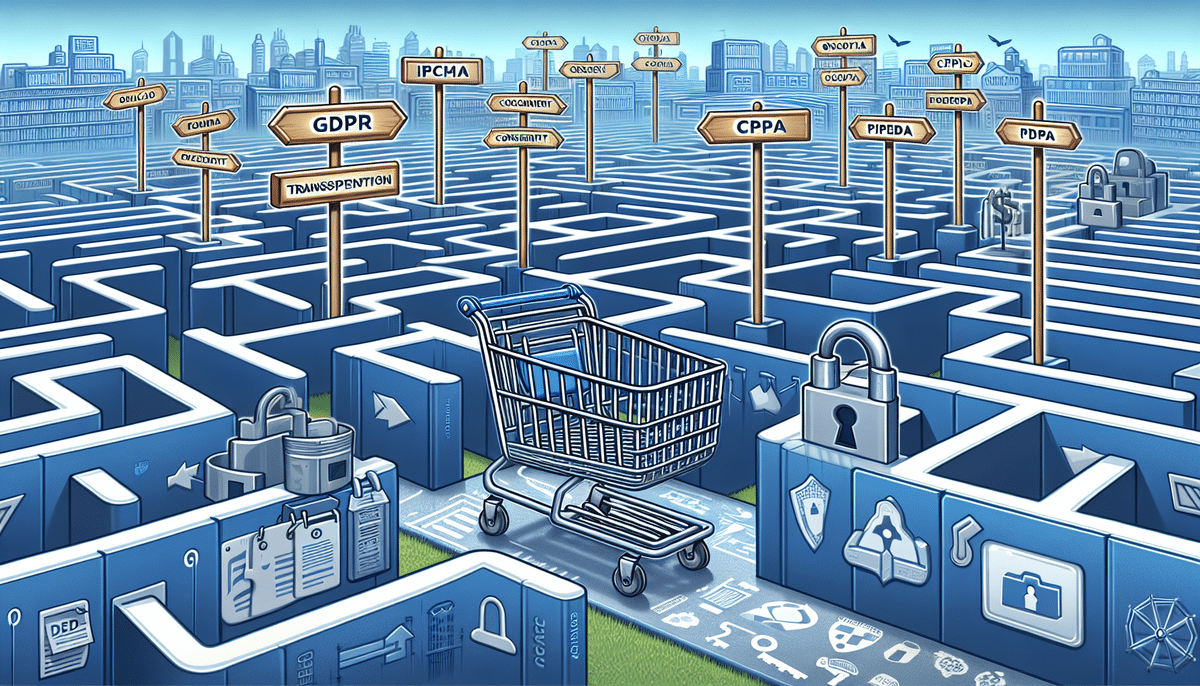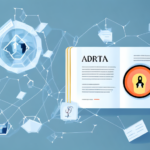Understanding the Regulatory Landscape for E-Commerce
Operating an e-commerce business requires a deep understanding of the multifaceted regulatory environment. E-commerce businesses must navigate national, state, and local laws, as well as international regulations when operating globally. Key areas include consumer protection laws, data privacy regulations, taxation policies, and industry-specific compliance standards. Staying informed about these regulations is crucial to maintaining legal compliance and fostering customer trust.
Key Regulations Affecting E-Commerce
- Consumer Protection Laws: Ensure fair treatment of consumers, including clear return policies and truthful advertising.
- Data Privacy Regulations: Laws like the General Data Protection Regulation (GDPR) and the California Consumer Privacy Act (CCPA) govern how businesses collect, store, and use personal data.
- Taxation Policies: E-commerce businesses must comply with sales tax regulations, which can vary significantly by jurisdiction.
- Industry-Specific Standards: Certain sectors, such as pharmaceuticals or electronics, have additional compliance requirements.
The Importance of Compliance and Risks of Non-Compliance
Compliance is not just a legal obligation but also a cornerstone for building trust with customers. Non-compliance can result in severe consequences, including substantial fines, legal action, and damage to a brand’s reputation. For instance, violations of the GDPR can lead to fines of up to €20 million or 4% of annual global turnover, whichever is higher (GDPR Fines Overview).
Consequences of Non-Compliance
- Financial Penalties: Regulatory bodies impose hefty fines for violations, which can be financially crippling for businesses.
- Legal Action: Non-compliance can lead to lawsuits, further increasing legal costs and potential settlements.
- Reputational Damage: Publicized compliance failures can erode consumer trust and lead to a loss of customers.
- Operational Disruptions: Compliance issues may result in the suspension of business operations until issues are resolved.
Common Regulatory Challenges in E-Commerce
E-commerce businesses face a variety of regulatory challenges that can differ based on their operational scope and market. Understanding these challenges is essential for developing effective compliance strategies.
Data Privacy and Security
With the increasing reliance on digital platforms, protecting customer data is paramount. Compliance with data privacy laws like the GDPR and CCPA requires robust data protection measures, including encryption, secure storage, and strict access controls.
Taxation and Customs Compliance
Global e-commerce operations must navigate complex tax regulations and customs requirements. This includes understanding VAT obligations in different countries and ensuring accurate classification of goods for customs duties.
Product Safety and Standards
Ensuring that products meet safety standards is critical, especially for international markets. Non-compliance can lead to product recalls, legal action, and loss of consumer trust.
Intellectual Property Rights
Protecting intellectual property (IP) and avoiding infringement is a significant challenge. E-commerce businesses must ensure that their products and content do not violate existing IP laws.
Ethical Business Practices
Maintaining ethical standards is essential for long-term success. This includes transparent pricing, honest marketing, and responsible sourcing of products.
Strategies to Overcome Compliance Challenges
Effectively addressing regulatory challenges requires a proactive approach. Implementing comprehensive compliance strategies can help e-commerce businesses mitigate risks and stay ahead of regulatory changes.
Implement Robust Data Protection Measures
Adopt advanced security technologies such as encryption, multi-factor authentication, and regular security audits to protect customer data. Additionally, ensure compliance with data privacy laws by obtaining explicit consent for data collection and processing.
Leverage Expert Consultation for Tax Compliance
Consult with tax professionals to navigate the complexities of international taxation. Utilizing automated tax compliance software can also improve accuracy and reduce the risk of errors.
Ensure Product Compliance
Regularly review and update product safety protocols. Collaborate with third-party testing organizations to certify that products meet necessary safety standards.
Protect Intellectual Property
Register trademarks and patents to protect your IP. Monitor marketplaces for potential infringements and take legal action against violators when necessary.
Adopt Ethical Business Practices
Develop a code of conduct for employees, provide transparent product information, and establish clear return and refund policies to foster trust and ethical operations.
Leveraging Technology for Compliance
Technology plays a pivotal role in simplifying compliance processes and enhancing data security. E-commerce businesses can utilize various technological solutions to ensure adherence to regulatory requirements.
Automated Compliance Software
Automated tools can streamline compliance tasks such as tax calculations, data protection management, and monitoring regulatory changes. Solutions like Avalara offer comprehensive tax compliance automation.
Enhancing Data Security with Advanced Technologies
Implementing technologies like blockchain for secure transactions and artificial intelligence for fraud detection can significantly bolster data security efforts.
Developing a Comprehensive Compliance Plan
A well-structured compliance plan is essential for managing regulatory obligations effectively. A comprehensive plan should include:
- Regulation Identification: Identify all relevant regulations that impact your business operations.
- Policy Development: Create internal policies and procedures to ensure compliance with identified regulations.
- Employee Training: Educate employees about compliance requirements and best practices.
- Regular Audits: Conduct periodic audits to assess compliance status and identify areas for improvement.
- Incident Response: Develop protocols for responding to compliance breaches or data security incidents.
By establishing a robust compliance framework, e-commerce businesses can navigate the regulatory landscape with confidence, minimize risks, and build a trustworthy brand.
Continuous Monitoring and Improvement
Regulatory environments are dynamic, with frequent updates and changes. Implementing a system for continuous monitoring ensures that your compliance strategies remain effective and up-to-date.
Engaging with Regulatory Bodies
Maintaining open communication channels with regulatory authorities can provide valuable insights into upcoming changes and help ensure that your business remains compliant.
Conclusion
The e-commerce landscape is governed by a complex web of regulations that require diligent attention and proactive management. By understanding the regulatory environment, prioritizing compliance, addressing common challenges, leveraging technology, and developing a comprehensive compliance plan, e-commerce businesses can navigate regulatory hurdles successfully. Compliance not only safeguards against legal and financial penalties but also enhances brand reputation and fosters customer trust, driving long-term success in the competitive e-commerce market.




















